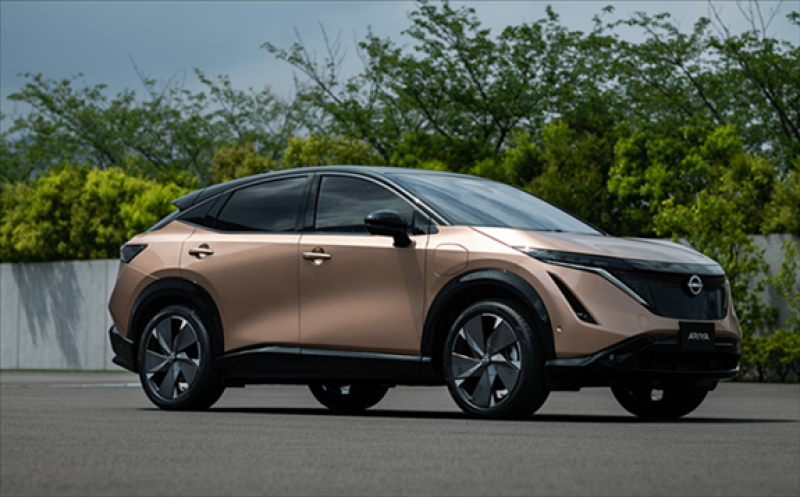Nissan plans to sell only electric and hybrid cars in China from 2025. The decision to electrify its entire model range in China follows against the background of the emerging ban on the registration of pure combustion engines in China from 2035.

According to the Japanese business newspaper Nikkei, Nissan plans to introduce nine electrified models in China by 2025, including the all-electric Ariya and five or six hybrid models with an e-power system. The sale of pure combustion engines is to end in the same year.
For 2021, Nissan plans to start selling the Ariya electric SUV in China. Among the E-Power hybrids – a serial hybrid powertrain – the Sylphy sedan is also to be included. The model has been sold in China with pure e-drive since 2018.
With the new model policy, Nissan expects the share of electric cars in its sales in China to increase significantly. In the fiscal year 2018, only two per cent of all Nissans sold in China were electric cars. By 2023 this share is expected to rise to 23 per cent.
Nissan’s new model plan is a reaction to the emerging ban on the registration of pure combustion engines from 2035. The influential Chinese Society of Automotive Engineers, which is working with the Ministry of Industry, has proposed that only “environmentally friendly” cars should be registered in China from 2035. More than half of the registrations would then be for New Energy Vehicles (BEV, PHEV, FCEV), the rest would be “fully hybridized”. The proposal has not yet been translated into a concrete regulation. However, since the proposal has only been known for about a week, it can be assumed that the planning at Nissan had already been completed by then.
When the Chinese government set the NEV quotas until 2023 in June 2020, full hybrids were also put in a better position than before. Although they are still considered to be internal combustion engines, they are considered to be “low fuel consumption passenger cars” and receive fewer negative points.
Nissan will also expand its production capacity in China by 30 per cent to two million vehicles. This year, new plants are to be commissioned in Changzhou (Jiangsu province) and next year in Wuhan (Hubei province).